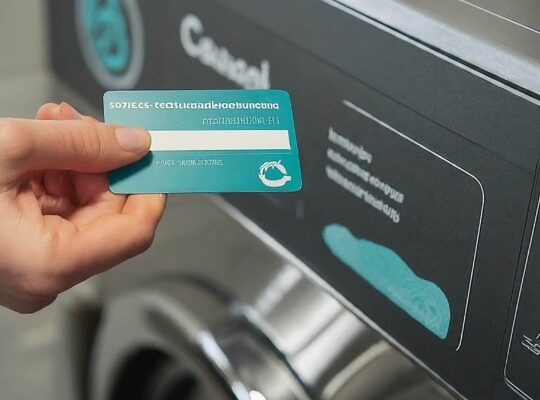The best and most helpful thing when facing a medical bill or expense is knowing that it can be reduced. Whether you negotiate with the healthcare provider or get a lawyer to do it, it stands as a relief for many. But, how much can lawyers negotiate medical bills?
Medical Bills versus Insurance Coverage
Medical bills are at times confusing and overwhelming, this is especially true if you do not have a clear understanding of the bill and insurance coverage.
Before you start negotiating with healthcare providers, it is essential that you familiarize yourself with the terms and codes that have been used in medical billing as well as details of your insurance policy.
Begin by carefully reviewing each medical bill, making sure that the listed services and charges are accurate and necessary. In case spot any errors or discrepancies, make notes and gather supporting documentation.

Next, you will have to examine your insurance coverage in order to determine if the received services have been covered. While doing so, pay attention to deductibles, copayments, out-of-pocket maximums, and any exclusions. Having a good understanding of the coverage would enable you to have a better idea of how much room you have for negotiation.
Advantages of Negotiating Medical Bills
For lawyers, negotiating medical bills is not only about saving their clients’ money; they also do this so that they ensure the fairness and accuracy of the charges. Medical bills are notorious for being complex and often inflated. It is due to this that lawyers specializing in medical bills play a major role in advocating for the rights of their clients and protecting them from unjust financial burdens.
Negotiating bills enables lawyers to make a significant difference in their clients’ financial stability and overall well-being. It allows clients to focus on their recovery without the added stress of overwhelming medical debt.
Besides all this, negotiating a bill establishes a precedent and sends a message to healthcare providers. A message that unjustified charges and inflated billing practices will not go unchallenged.
Elements to Consider Prior to Negotiating Medical Bills
Several factors need to be considered before diving into negotiations. There are factors that would help you assess the feasibility of negotiating medical bills and determining the potential savings that could be attained.
- Timeframe: Negotiating medical bills is a time-consuming process. Because of this, you will have to consider how much time and effort you would be willing to invest. In case you are facing urgent financial constraints, it would be worth exploring other options like seeking financial assistance or setting up a payment plan.
- Debt amount – The larger the medical debt, the more room there is for negotiation. Healthcare providers would be willing to negotiate if they believe it is the only way to recover any payment. Smaller dents are harder to negotiate as providers are less inclined to invest time and resources into smaller cases.
- Documentation and evidence – Strong documentation and evidence are important when negotiating medical bills. Gather all relevant documents, including medical records, itemized bills, insurance policy details, and any other supporting document that can be helpful in strengthening the case. The more evidence you have to support your negotiations, the better your chances of success.
Steps for Medical Bill Negotiation
To successfully negotiate a medical bill, you need to have a strategic approach.
- Reviewing and validating the bill – Start by reviewing the medical bill in detail. Look for any errors, duplicate charges, or services you did not receive. Cross-reference the bill with your medical records and other relevant documentation to verify the charges.
- Identification of negotiable charges – Determine which charges are negotiable and focus on those. Non-medical charges like administrative or facility fees are often more negotiable than medical services or procedures. Get to prioritize the charges that seem excessive or unjustified based on your research on the average charges in your locality.
- Researching comparable costs – Research the average cost of medical services or procedures you received. Compare the costs to the charges on the bill to identify any major discrepancies. Such information would strengthen your negotiation position and provide you with evidence to support the case.
- Contacting the provider – Get in touch with the healthcare provider’s billing department or financial services department. Clearly and concisely explain your situation, emphasizing your willingness to resolve the matter. Request a detailed breakdown of the charges and ask for an explanation of any charges that you find questionable.
- Negotiating payment terms – In case the provider is unwilling to reduce the charges, explore the possibility of negotiating payment terms. Request a payment plan that fits within your budget and that offers relief from immediate financial strain.
- Escalating the negotiation – In case the initial attempts at negotiation are unsuccessful, escalate the matter to a higher authority within the healthcare provider’s organization. This would be a supervisor, manager, or even the legal department. Be persistent and assertive in advocating for a fair resolution.
How Much Can Lawyers Negotiate Medical Bills
Regarding how much can lawyers negotiate medical bills, lawyers cannot guarantee a specific reduction in medical bills. This is because the amount they can negotiate is dependent on the specifics of the case, the complexity of your treatment, insurance coverage, and the local applicable regulations and laws. Also, the skill of the lawyer and the willingness of the provider to cooperate do play a part. In most cases, the medical bills would be reduced by 20% to 50%. Remember that this is not a guarantee.
Despite being challenging to provide precise figures, there are sources that suggest that experienced lawyers would be able to secure a reduction in around 95% of cases.
Related Article: Do Lawyers Get Paid Before Medical Bills
Tips for Successful Negotiation
With the right strategies and approach, negotiating medical bills cannot be challenging. Some tips that are helpful in negotiating effectively include:

- Be prepared – Gather all necessary documentation and evidence before entering into negotiations. This includes medical reports and insurance policy details.
- Know your rights – familiarize yourself with your rights as a patient and the protections afforded to you by relevant laws and regulations. This would empower you and make sure that you are not taken advantage of.
- Be polite and professional – Maintain a polite and professional demeanor throughout the negotiation process.
- Stay persistent – Do not give up easily. Be persistent in the negotiations and escalate the matter if necessary. Healthcare providers would be more willing to negotiate in case they see that you are committed to finding a fair resolution.
- Consider legal assistance – if negotiations prove to be challenging or if you are not confident in your negotiation skills, consider seeking legal assistance.
Negotiation Strategies for Lawyers
Lawyers specializing in medical bill negotiations utilize a range of strategies to attain the best possible outcome for their clients. The common negotiation strategies they employ are:
- Leveraging insurance regulations– This entails familiarizing oneself with state laws and insurance regulations to identify potential violations or discrepancies. By highlighting such issues, they get to strengthen their negotiation position and potentially reduce the charges.
- Appealing denied claims – Lawyers review denied insurance claims and explore the possibility of appealing the decisions. By providing additional evidence or arguing the case from a different perspective, they potentially overturn the denial and secure coverage for their clients.
- Establishing medical necessity – They emphasize the medical necessity of the receiver services of procedures. Demonstrating that the services were important for the health of the client and well-being helps in justifying a reduction in charges.
- Negotiating settlements – Lawyers negotiate settlements with healthcare providers, offering a lump sum payment in exchange for a reduction in charges. This strategy allows the provider to receive some payment while still reducing the overall debt burden. Hence, it benefits both parties.
- Threatening legal action – In cases where negotiations stall or providers refuse to cooperate, lawyers threaten legal action. This prompts providers to reconsider their position and be more willing to negotiate.
Factors to Consider When Hiring a Medical Billing Advocate or Attorney
In case you are overwhelmed by the complexity of negotiating medical bills or unsure of your negotiation skills, consider hiring a medical billing advocate or attorney. While doing this, consider the following factors:

- Experience and expertise – Look for professionals with extensive experience in medical bill negotiations and a track record of successful outcomes.
- Credentials and certifications – Check for any relevant credentials or certifications that demonstrate the advocate or attorney’s expertise in medical billing advocacy and negotiation.
- Transparent fee structure – Understand the advocate’s or attorney’s fee structure upfront. This includes retainer fees, hourly rates, or contingency fees. Make sure that the fees are fair and reasonable for the provided service.
- Client testimonials – Read client testimonials or reviews to get a sense of the advocate or attorneys’ reputations. Use social media platforms like Facebook and Twitter (currently X) to get more information from the online community.
Conclusion
In personal injury cases, it is not uncommon for lawyers to reduce medical bills by negotiating, sometimes they are able to do so by as much as 20% to 50% or more. The actual amount or percentage of how much can lawyers negotiate medical bills greatly varies from case to case.
Due to this, it is advisable to consult with a qualified lawyer instead of focusing on an average or certain reduction amount. Such professionals would provide you with a more personalized and realistic estimate based on the experience and knowledge they have.








